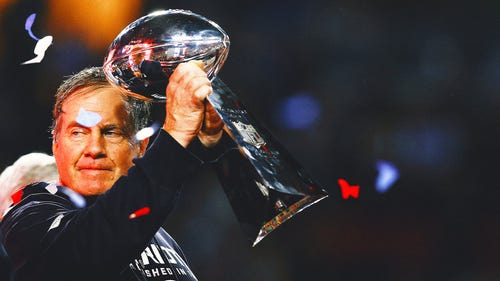
Protecting against a 'lone wolf' at the Super Bowl
The vast security operation protecting the Super Bowl and surrounding events ranges from Air Force F-16s patrolling the skies above Miami on game day to a buffer zone extending at least 100 yards out from the stadium.
No one without a credential or ticket can get past that barrier - and everyone is subjected to meticulous screening by law enforcement personnel. Also among the security tools: 100 magnetometers, bomb-sniffing dogs, and devices used to detect chemical or biological threats.
``We have no viable threat to the Super Bowl at this point,'' John Gillies, special agent in charge of the FBI's Miami field office, said in an interview.
In the run-up to next Sunday's game between the Indianapolis Colts and New Orleans Saints, the FBI is running the Joint Operations Center, which houses in one place more than 200 representatives from about 68 federal, state and local agencies that are responsible for security and responding to any threats.
The Miami-Dade Police Department has a separate Fusion Center that helps disseminate intelligence and other information to the smaller police and government agencies in South Florida.
``We collect intelligence from all over the world and then we disseminate it, so that everyone knows what's going on,'' said William Maddalena, a top Miami FBI official in charge of special events. ``We'll have daily briefings to put out the latest information we have.''
But all that intelligence-gathering may not uncover a single person acting alone who wants to attack or disrupt the game or surrounding events. James Loftus, interim director of the Miami-Dade Police Department, said that's what keeps Super Bowl security planners awake at night.
Gillies of the FBI agreed.
``The biggest problem that we have is the lone wolf. They operate by themselves. They operate in seclusion. They don't discuss their plans or potential threats to anyone else,'' Gillies said.
``We have trained for a number of scenarios and combined scenarios. There are other assets that will be deployed that may not have been shared with the public.''
Coast Guard Rear Admiral Steven Branham, the federal coordinator for Super Bowl security, said the stadium and environs will be thoroughly screened for bombs and other threats well before anyone is allowed inside. He said a robust and thorough screening procedure will be used for people entering the stadium, and he said fans can play a role as well.
``Be mindful of your surroundings. Speak up. Report things that look funny to you, so they can be dealt with appropriately,'' Branham said.
Loftus said another concern is someone who might try to use a false police or firefighter uniform, or some other official clothing, to gain unauthorized access. Officials are watching out for that, he said.
The Federal Aviation Administration has established a no-fly zone for private aircraft within a 10-mile radius of the stadium between 4 p.m. and midnight on game day. Between 10 miles and 30 miles out in all directions, pilots can only fly directly to or from an airport.
The FAA says aircraft that stray within the wrong zone will be approached and, if necessary, forced to land or even shot down if the plane poses an ``imminent security threat.''










